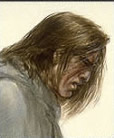Forum
Welcome Guest |
|
|---|---|
 Author Author |
Topic: |
|---|
| atalante_star |
|
||||||||
| Nienna-of-the-Valar |
|
||||||||
| PotbellyHairyfoot |
|
||||||||
| atalante_star |
|
||||||||
| PotbellyHairyfoot |
|
||||||||
| Nienna-of-the-Valar |
|
||||||||
| Tasarwen |
|
||||||||
| atalante_star |
|
||||||||
| Scothia |
|
||||||||
| Morwinyoniel |
|
||||||||
| Scothia |
|
||||||||
| Falagar |
|
||||||||
| atalante_star |
|
||||||||
| Gilwen_the_Sorceress |
|
||||||||
| PotbellyHairyfoot |
|
||||||||
| Nienna-of-the-Valar |
|
||||||||
| PotbellyHairyfoot |
|
||||||||
| Falagar |
|
||||||||
| Scothia |
|
||||||||
| Nienna-of-the-Valar |
|
||||||||
| Tinúmelë |
|
||||||||
| Falagar |
|
||||||||
| Scothia |
|
||||||||
| Nienna-of-the-Valar |
|
||||||||
| Tinúmelë |
|
||||||||
| Morwinyoniel |
|
||||||||
| Ioreth_Fimbrethil |
|
||||||||
| atalante_star |
|
||||||||
| Nyérëven |
|
||||||||
| atalante_star |
|
||||||||
| Strider_is_the_cats_MEOW |
|
||||||||
| atalante_star |
|
||||||||
| Drauglin |
|
||||||||
| Fattybolger |
|
||||||||
| Grifo |
|
||||||||
| Members Online |









 Fëanor [keep - edit]
Fëanor [keep - edit]



 and Tolkien would have written a very dull book!
and Tolkien would have written a very dull book!